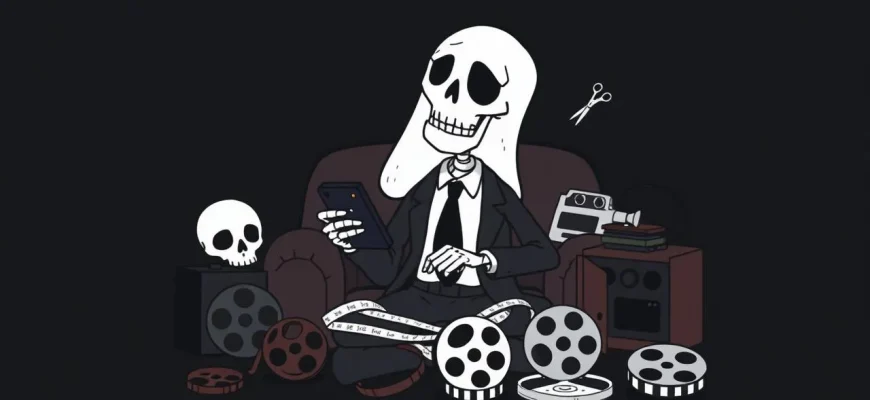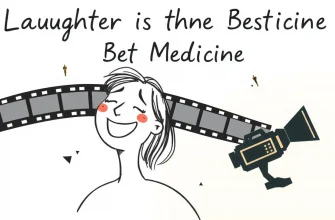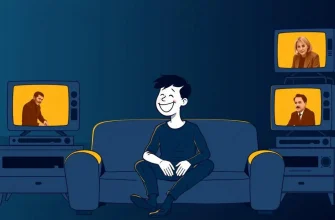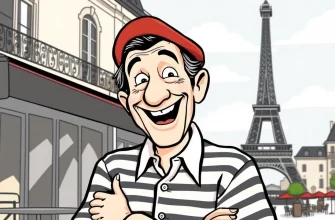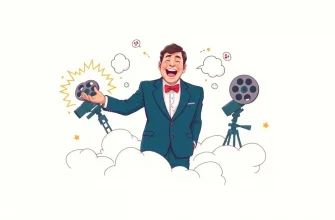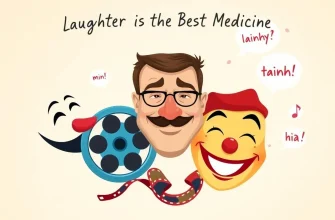Dark comedy is a genre that dances on the edge of discomfort, blending humor with themes that might otherwise be considered taboo or grim. This curated list of the top 10 dark comedy films is a treasure trove for those who appreciate the art of laughing at life's darker moments. From the absurd to the macabre, these films offer a unique perspective on life, death, and everything in between, ensuring a viewing experience that's as thought-provoking as it is entertaining.

Dr. Strangelove or: How I Learned to Stop Worrying and Love the Bomb (1964)
Description: Stanley Kubrick's satirical masterpiece about a nuclear crisis caused by a paranoid general, showcasing the absurdity of Cold War politics and the potential for human error to lead to global catastrophe.
Fact: Kubrick originally intended to adapt the novel "Red Alert" as a serious drama, but the absurdity of the plot led him to turn it into a black comedy.
 Watch Now
Watch Now 
A Fish Called Wanda (1988)
Description: A heist comedy where a group of thieves, including a con artist and a hitman, engage in a series of double-crosses and misunderstandings, all with a darkly comedic flair.
Fact: The film was nominated for three Academy Awards, including Best Director for Charles Crichton, who was 78 at the time, making him the oldest nominee in that category.
 Watch Now
Watch Now 
Heathers (1989)
Description: A dark comedy about teenage angst, murder, and the high school social hierarchy, where a misfit and her boyfriend start killing off the popular kids, satirizing the teen movie genre.
Fact: The film was initially controversial for its dark themes but has since become a cult classic, influencing many teen films that followed.
 Watch Now
Watch Now 
Fargo (1996)
Description: This Coen brothers' masterpiece blends crime, kidnapping, and murder with a darkly humorous twist, showcasing the absurdity of human behavior in the snowy landscapes of Minnesota.
Fact: The film's famous woodchipper scene was inspired by a real-life incident, and the movie was initially marketed as a true story, though it's largely fictional.
 Watch Now
Watch Now 
American Psycho (2000)
Description: A satirical take on the 1980s Wall Street culture, where Patrick Bateman, a wealthy investment banker, leads a double life as a serial killer, with scenes that oscillate between horror and dark humor.
Fact: The film's script was initially considered unfilmable due to its graphic content, but Mary Harron managed to adapt it with a mix of horror and comedy.
 Watch Now
Watch Now 
The Royal Tenenbaums (2001)
Description: Another Wes Anderson gem, this film follows the dysfunctional Tenenbaum family, where dark humor arises from their eccentricities, failures, and attempts at reconciliation.
Fact: The film's soundtrack features Nico's "These Days," which was chosen by Anderson for its melancholic tone, fitting the film's theme.
 Watch Now
Watch Now 
In Bruges (2008)
Description: Two hitmen hide out in the picturesque city of Bruges after a job goes wrong, leading to a mix of dark humor, guilt, and redemption. The film's dialogue is sharp, and the setting is as much a character as the actors.
Fact: The film was shot entirely on location in Bruges, Belgium, and Colin Farrell's performance was so well-received that it revitalized his career.
 Watch Now
Watch Now 
The Grand Budapest Hotel (2014)
Description: Wes Anderson's visually stunning film tells the story of a legendary concierge and his lobby boy at a renowned European hotel, filled with theft, murder, and political turmoil, all wrapped in Anderson's signature whimsical humor.
Fact: The film features an ensemble cast, and the hotel itself was inspired by various European hotels, particularly the Hotel Imperial in Vienna.
 Watch Now
Watch Now 
The Lobster (2015)
Description: In a dystopian world where single people must find a romantic partner within 45 days or be transformed into animals, this film explores themes of love, conformity, and absurdity with a dark comedic edge.
Fact: The film was shot in Ireland, and the director, Yorgos Lanthimos, had actors live together to create a sense of community and isolation.
 Watch Now
Watch Now 
Monty Python's Life of Brian (1979)
Description: This Monty Python film parodies religious epics, following Brian, who is mistaken for the Messiah, leading to a series of hilarious and blasphemous misadventures.
Fact: The film was banned in several countries upon release due to its controversial content, but it's now celebrated for its satire.
 30 Days Free
30 Days Free 
